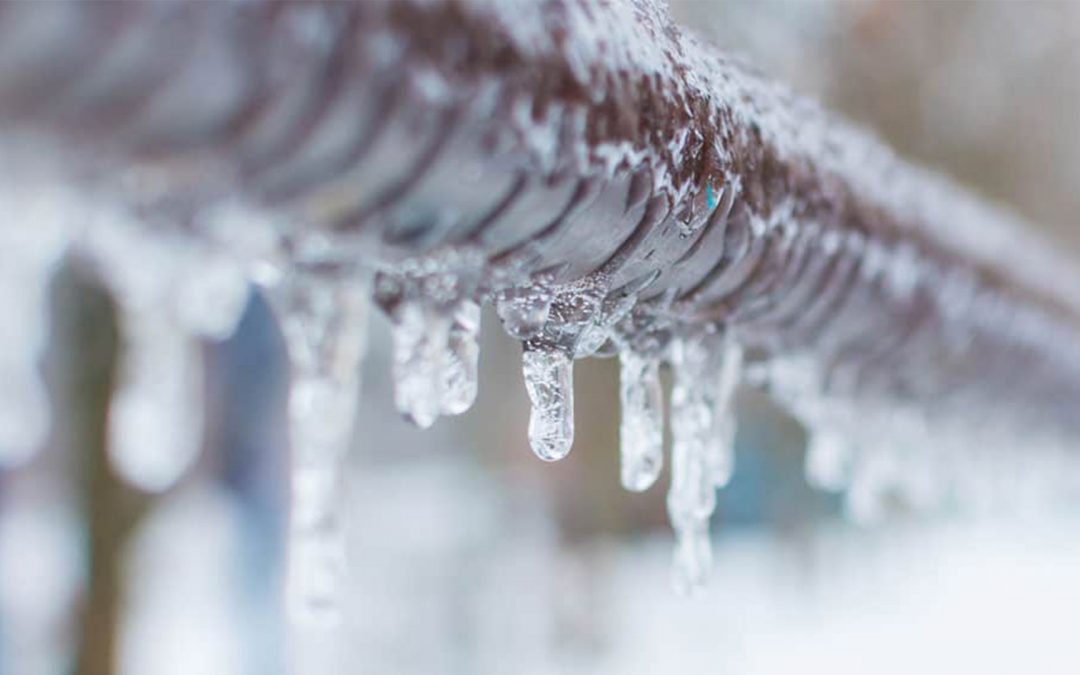Protect Your North Carolina Home Against Frozen Pipes & Costly Repairs
Living in North Carolina means you can count on some cold winter days with occasional snow and ice. If your home is not prepared for winter weather, you could be at risk for extensive winter home hazards ranging from frozen or burst pipes to a collapsed roof. The repairs for these types of incidents can quickly add up, so preparing your house before a deep freeze hits is the best approach.
Here are the top three winter home hazards to watch for and ways to prevent them from happening in the first place:
Winter Home Hazard # 1 — Frozen or Burst Pipes
One of the top claims filed by homeowners in the winter are for damage due to burst pipes. There are a number of things you can do to head off this potential disaster. When you notice the temperatures dropping below freezing, try one or all of these ways to prevent frozen or burst pipes:
- Let the water drip. Keep a small stream of water running in a few faucets throughout the house to guard against pipes freezing, or even worse, bursting. Even if the water does freeze, it will still relieve some of the water pressure and keep the pipes from bursting.
- Open your cabinets. Open the cabinets under your kitchen and bathroom sinks and leave them open to keep warm air circulating around your pipes.
- Add extra insulation. Wrap exposed pipes in colder areas of your home, such as your basement, with insulation sleeves. Your local hardware store should have foam rubber or fiberglass sleeves, or your area plumber can do this for you. It’s definitely worth the expense now compared to fixing them later if they break.
- Turn up the heat. While it may not help you save on electricity, keeping the heat on can help prevent pipes from freezing or bursting. Set the temperature to at least 55° on a regular basis to keep your pipes warm.
- Caulk all cracks. Seal the gaps in your home’s outside walls or foundation to help keep cold air away from your pipes. Install weather stripping and seals around openings such as windows, doors and air conditioners. It’s also a good idea to help keep all the heat in your house and not waste extra electricity.
- Drain your pipes. If you travel for an extensive period of time away from your home in the winter, consider draining your pipes to prevent them from bursting while you are gone. Shut off the main water valve, turn on all faucet taps, both hot and cold, and let the water run until the pipes are emptied.
Winter Home Hazard # 2 — Roof and Ceiling Damage
Water can build up behind an ice blockage, creating what’s called an ice dam, which can cause many problems on the top of your house. Ice dams form at the edge of the roof and block melting snow from draining into the gutters. This situation can result in damage to ceilings and roofs by allowing melting snow to leak into a home. It can sometimes even cause the entire roof to cave in.
For an ice dam to form, there must be snow on the roof and the higher surfaces of the roof must be above 32° and lower surfaces below freezing. A dam will grow on the parts of the roof that are below 32°. To keep ice dams from forming, try to keep the entire roof the same temperature as the eaves. You can do this by sealing off any air leaks, increasing ventilation and adding insulation. Excessive warm air in the attic can cause snow on the roof to melt no matter what the temperature is outside.
If an ice dam does form, the best way to melt it is putting calcium chloride ice melt on top of the ice. Only use calcium chloride and not rock salt, which can damage your roof.
Ways to prevent ice dams:
- Have your gutters cleaned before temperatures drop.
- Keep your attic and eaves well ventilated.
- Insulate the attic floor to reduce extra heat rising from your house.
- Shovel snow off the roof before it freezes or hire someone professional to clear it.
- Install a water-repellent roof membrane.
Winter Home Hazard # 3 — Furnace and Chimney Buildup
Check that your heating system is operating effectively and safely before cold weather hits and problems occur. A poorly maintained furnace can produce dangerous amounts of carbon monoxide, an odorless gas that can cause flu-like symptoms, confusion or even death.
Furnaces, boilers, and chimneys should be serviced at least once a year to clear any buildup and keep them running efficiently. Hire a qualified professional to clean and inspect them to ensure your safety. Whether you have an oil, gas, or electric system, have it serviced before the heavy heating season.
Most homeowners insurance policies cover damages due to extreme winter weather, but make sure you speak with a licensed agent from Dan Thompson Agency to answer any questions you have about your specific homeowners, condo or renters’ insurance policy. We’re always here to best protect your home from winter hazards. Stay warm!
